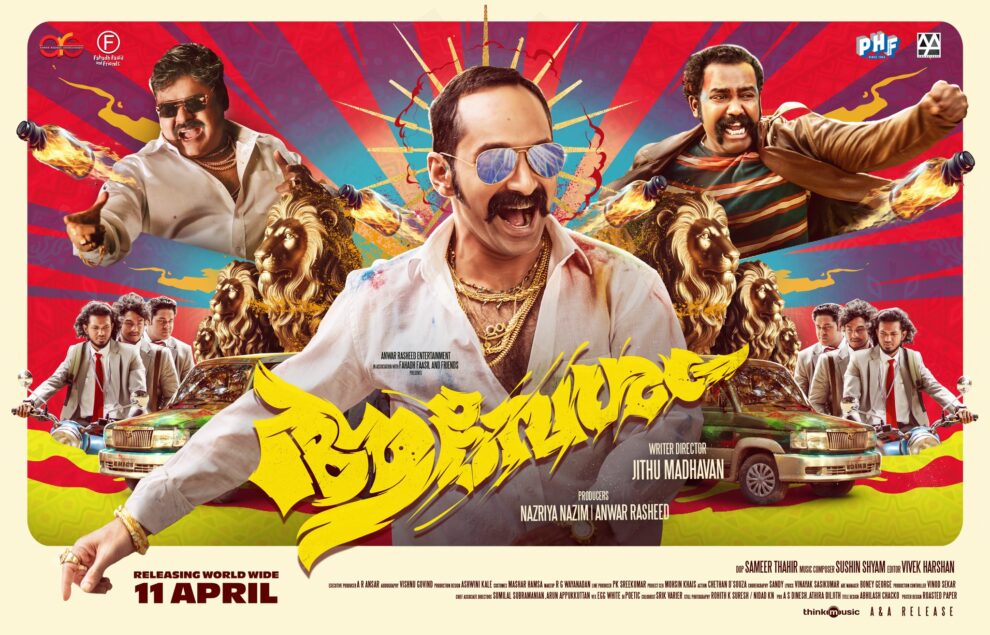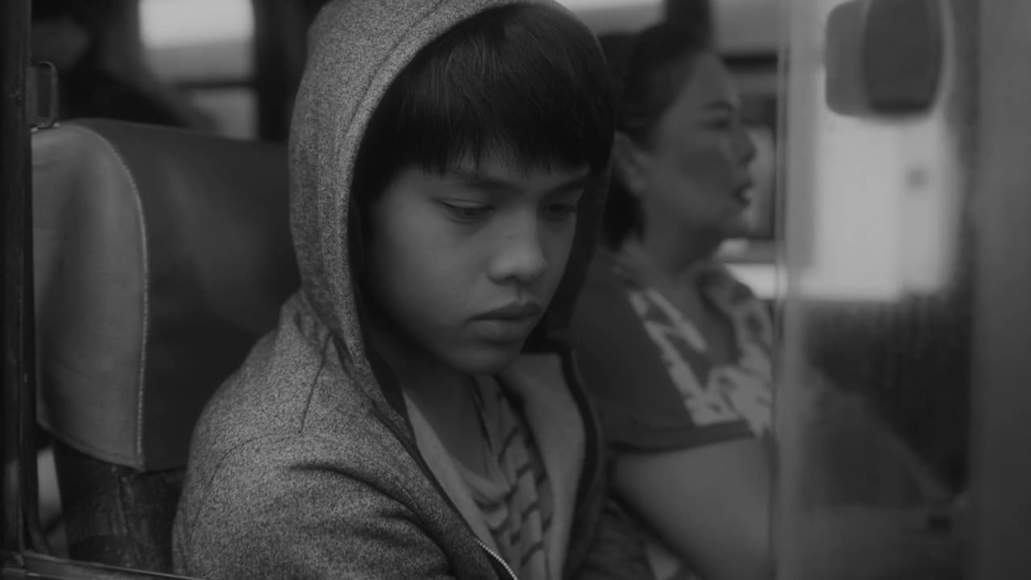Last year, director Jithu Madhavan debuted with “Romancham”, a Malayalam horror comedy set in Bangalore, which sees seven bachelors haunted by a spirit after an Ouija board game gone wrong. The sleeper hit, starring newcomers, went on to become the highest grossing Malayalam film of 2023, leaving fans in anticipation for what Madhavan would do next. They didn't have to wait too long either, as his follow-up feature “Aavesham” just saw release earlier this year nationwide, becoming a commercial hit.

Bibi, Aju and Shanthan are three friends who have just moved to Bangalore to pursue their engineering studies. With dreams of booze and cigarettes on their minds, they're here to have a good time at college, but their life in Bangalore doesn't quite start off as they had imagined when they get in the crosshairs of their senior, the funny-sounding goon Kutty and his gang. They are picked up and beaten black and blue by the ruffians and the three friends swear sweet revenge on Kutty and his gang, for which they intend to befriend a local goon, any local goon for some backing. Enter Ranga, a flamboyant gangster with his own gang who takes an instant liking to the boys, but the three friends just can't seem to bring themselves to tell their new friend about their predicament.
With “Aavesham”, Jithu Madhavan tries his hands at a full-blown mass feature, but not without having the distinct flavour that made his debut such a popular release. With its central characters being college students, the narrative tackles some themes often seen in stories revolving around them, like ragging or bullying of juniors by their seniors, living conditions and language issues that people from different regions face in places that don't speak their language. However, as with “Romancham”, Madhavan's focus is on comedy, which really is the narrative's strongest suit, and using that, he never really makes the story a heavy-handed social message. Having said that, there isn't really much to the storyline in this, with the story running out of steam at the halfway point and beyond, after which, in almost a parallel to the trio of characters who try to get out of the situation they find themselves in, the filmmakers too seem to have a hard time getting out of the direction they find themselves in with the story.
Said situation arises due to the eccentricity of Ranga as a character, played in an incredible fun manner by Fahadh Faasil, who also acts as producer here. The opening credits, which come well into the runtime, announce that they are “Reintroducing Fahadh Faasil” and it is plain to see why, with the otherwise usually serious actor playing Ranga completely against his norm. Right from his entry, in full mass style, you know this is a different Faasil and a different performance from the very accomplished actor that we're witnessing, down to his mannerisms, styling and charisma. Never missing a beat, he makes the final end product of “Aavesham” a lot more enjoyable than it has any right to be.
Despite being fully committed and invested into the character, Faasil looks very much like enjoying himself, be it dancing in a towel or instructing his goons to fight for him in the action sequences. Fans also get a glimpse of the FaFa they love, in a wonderful scene where he plays a game of dumb charades, his expressions changing at the flick of a switch, a scene which also exemplifies Jithu Madhavan's penchant of eliciting tension in the smallest and most mundane of situations. Faasil's famous eyes, which are known to act more than some actors in their entire careers, get their time to shine too, in a scene that sees Ranga's trademark aviator shades get broken in a fight just so his eyes can get the limelight.
Just as in “Romancham”, Madhavan once again works with a bunch of newcomers too, all three of who manage to share a good chemistry amongst themselves, while also standing head and shoulders besides Fahadh Faasil in the scenes they share with him. In fact, a large part of the runtime, especially in the beginning, is dedicated to Mithun Jai Sankar, Hipster and Roshan Shanavas and their characters Bibi, Aju and Shanthan respectively, with Sankar and Hipster probably getting the better character arcs of the three, relegating Shanavas to the comic relief for the most part. Another feather in the casting cap here is Sajin Gopu, who plays Amban, Ranga's very devoted right-hand man and licensed storyteller. One of writer-director Madhavan's strongest points is character writing which is on display here too, with all the actors utilising the writing to magical effect.
Returning to work with Madhavan, Sushin Shyam's music, and particularly the background score, also plays a big part in elevating the enjoyment. Ranga's entry and the fight sequence at the intermission point are just two examples of instances where the score makes the scenes a lot better than they would have been without. The songs too bear the Sushin Shyam trademark of being a little different yet equally enjoyable in each instance, including his collaboration with rapper Dabzee for “Illuminati”. Action sequences are sufficiently mass-y in their treatment, and similarly to the rest of the feature, they are lensed in a fun way. The cinematography makes good use of the colour, with a lot of orange glow throughout, which gels well with the production design, special mention in which must also go to Ranga's pub and the house the boys end up living in impressing.
Ultimately, “Aavesham” may not stand as close as “Romancham” for some, but what Jithu Madhavan's sophomore feature has that his debut didn't is an on-form Fahadh Faasil unlike you've seen him before, having absolute fun with his character. This man truly is a national treasure and a chameleon actor capable of owning whatever roles are sent his way. Most certainly a theatre experience, it is plain to see why “Aavesham” is doing the good business it has so far. 2024 continues to prove a terrific year for Malayalam cinema.















